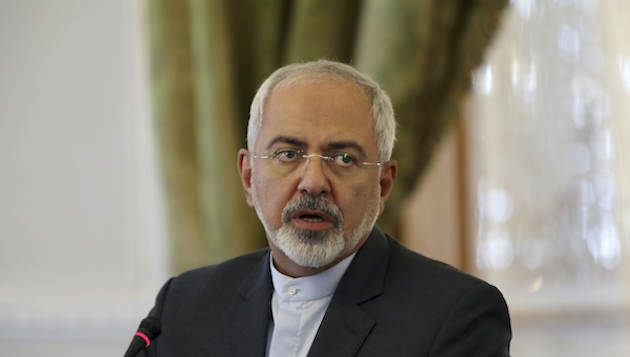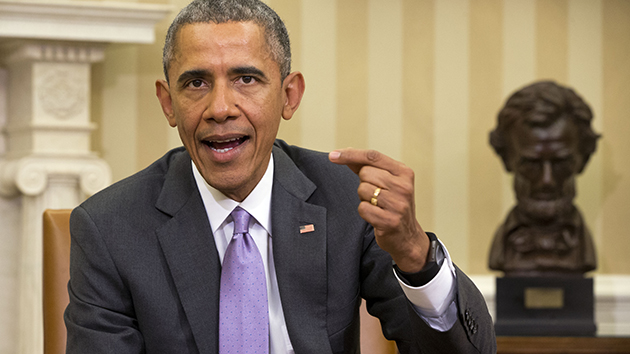
Vahid Salemi/AP
On Monday, Iranian Foreign Minister Javad Zarif responded to a controversial letter signed by 47 GOP senators urging Iran to reject a nuclear deal with the United States, dismissing the message as “mostly a propaganda ploy” that aimed to undermine President Barack Obama’s diplomatic efforts. Zarif said in a statement:
It is very interesting that while negotiations are still in progress and while no agreement has been reached, some political pressure groups are so afraid even of the prospect of an agreement that they resort to unconventional methods, unprecedented in diplomatic history. This indicates that like Netanyahu, who considers peace as an existential threat, some are opposed to any agreement, regardless of its content.
The Republican letter, which was organized by Arkansas Sen. Tom Cotton, warned Iran’s leaders that a nuclear agreement with Obama could be scrapped by any president who succeeds him. The message was clear: if you accept this deal, you could end up screwed; so don’t do it. It was a brazen attempt to sabotage Obama’s attempt to curb Iran’s nuclear program through a negotiated accord between Iran, the United States, and other nations.
In his response, Zarif challenged Cotton and his fellow Republicans on their reading of international law:
The authors may not fully understand that in international law, governments represent the entirety of their respective states, are responsible for the conduct of foreign affairs, are required to fulfill the obligations they undertake with other states and may not invoke their internal law as justification for failure to perform their international obligations.
Change of administration does not in any way relieve the next administration from international obligations undertaken by its predecessor in a possible agreement about Iran’s peaceful nuclear program.
This latest attempt orchestrated by Republicans to undercut the president’s negotiations with Iran angered the White House and sparked a furious response by Vice President Joe Biden, who slammed the GOP senators’ letter as “beneath the dignity of the institution I revere.” Several GOP senators also criticized the move, expressing concern that Cotton’s letter could backfire and spur additional support for a nuclear deal.
“It’s more appropriate for members of the Senate to give advice to the president, to Secretary Kerry and to the negotiators,” Sen. Susan Collins (R-Maine) said. “I don’t think that the ayatollah is going to be particularly convinced by a letter from members of the Senate, even one signed by a number of my distinguished and high ranking colleagues.”








